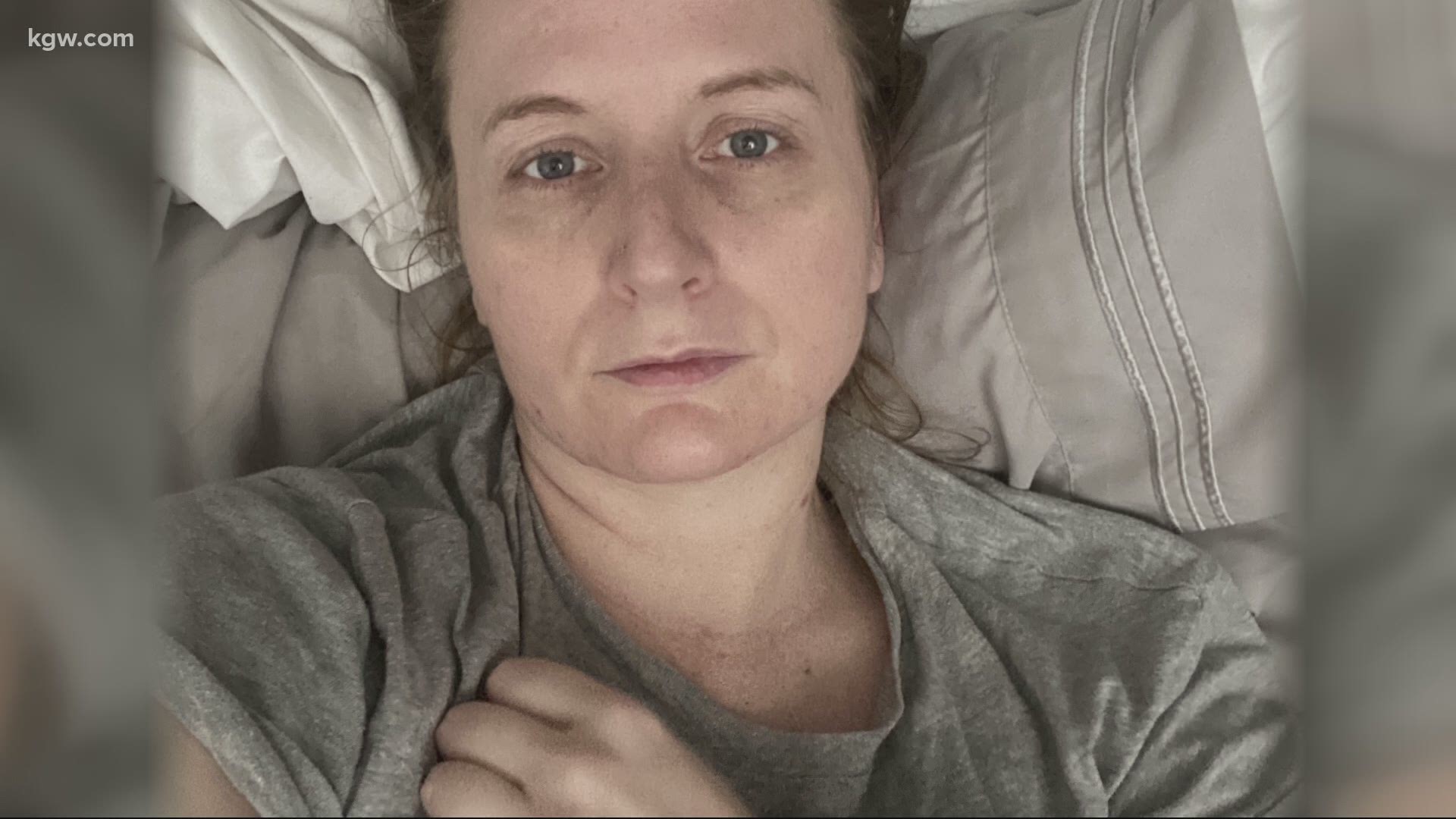PORTLAND, Ore — We're hearing from more and more young people who contracted COVID-19 and are dealing with lingering symptoms weeks and months later.
Patients with long-lasting effects are now being dubbed "long-haulers." Some say the virus hit them so hard they're still basically bed-ridden after more than 100 days.
A young, healthy, active 40-year-old mom from Vancouver with no underlying issues can now barely get out of bed.
“If you list every COVID-19 symptom - from the weird stuff to gastrointestinal to respiratory to neurological issues - I've had 100% of every single symptom,” Jenifer Johnston said. “I’ve lost like everything about who I am, and what I love.”
While she wasn’t able to access a test early when her symptoms began, she said several different doctors and specialists diagnosed her with COVID-19.
Johnston said she and her family were cautious because her son is immunocompromised and has been hospitalized with pneumonia before. But she had to work, which required she go into grocery stores. Johnston suspects that's where she caught the coronavirus back in March.
“It is honestly shocking to me how many things have happened to my body over the last four months,” she said.
What started out as a headache quickly morphed into pneumonia.
“I remember sitting on my bathroom floor, crying so hard to the doctor on the phone saying, 'I need to see a doctor, I can't breathe' - it makes me cry if I talk about it - 'I just need to see a doctor, I can't breathe and something's not right and I don't know why I can't get help,'” Johnston said through tears. “I basically fought for my life for, like, two months.”
A month later, she developed scary heart and blood pressure problems - and was finally hospitalized. She said when she would be standing or laying down her heart rate would spike to 180 to 200 beats per minute for no reason.
Johnston left the hospital a week later in no better shape. Over 100 days later she's making progress, but she still isn't the same - not even close.
“It’s traumatic to go to sleep worrying that you feel like you're going to die in your sleep every night,” she said. “So I’ve kind of learned what to do to manage that and get through it. I talk to a counselor once a week on video chat,” she said.
38-year-old Genesis Easton says she caught the virus in June at Orchards Tap Bar and Grill in Vancouver where there was an outbreak. She says no one inside the bar was wearing a mask.
Easton wasn't nearly as sick as Johnston but she, too, is young and now dealing with some lingering problems, including brain fog and low stamina.
A registered nurse, Easton quit her job in March and hasn’t been working since. She says she knew better than to go out to a bar but was drawn toward the sense of normalcy for a night.
“It is not enough to focus on death rates; we need to be thinking about how this virus can affect all of us long-term,” Easton said.
Mostly, she wants young people to know they're not immune and they need to stay guarded.
“No White Claw [Hard Seltzer] is worth it; no tacos are worth it. You know, we don't need to be having our lungs ravaged by a virus to get White Claws for $5 each at the bar,” Easton added. “That feeling of normalcy we're looking for is no longer in existence. We have to focus on a new normal.”

